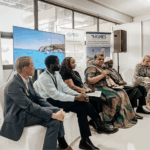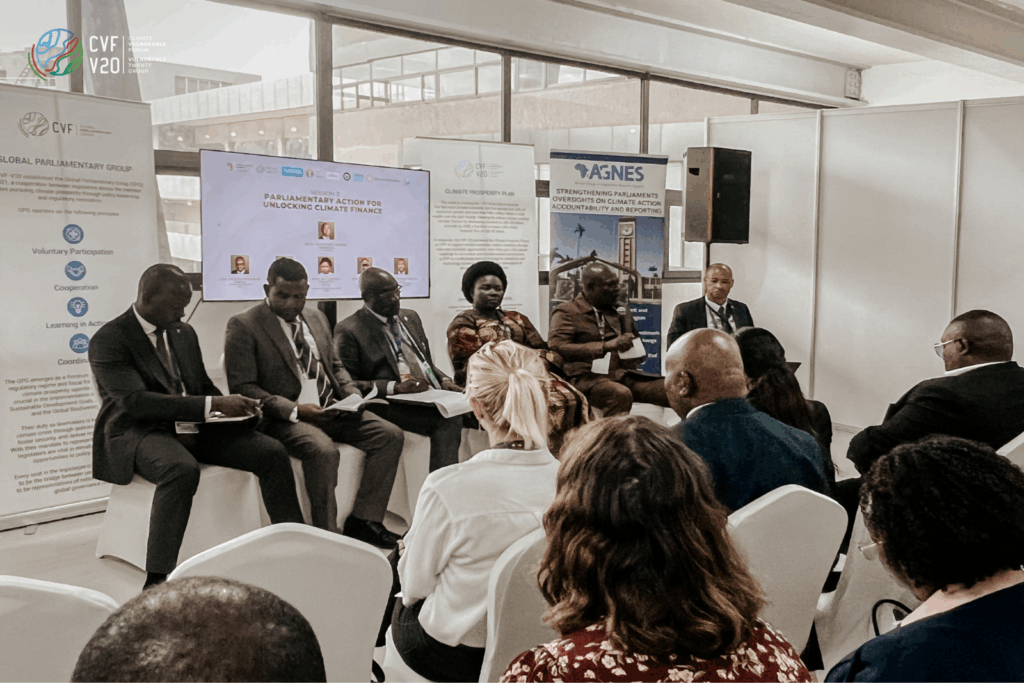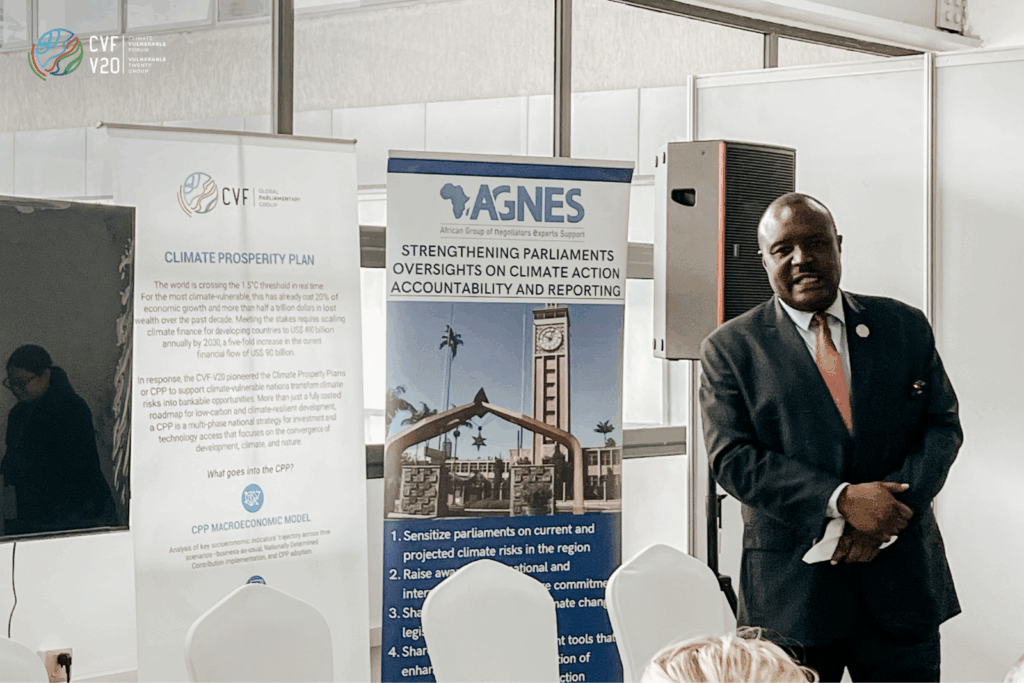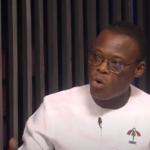
Africa has the solutions for a green and resilient future, but global partners must step up with the financing to match its ambitions.
That’s the unified message of lawmakers from 21 African parliaments who convened at the Second Africa Climate Summit (ACS2) in Addis Ababa, Ethiopia.
At the Parliamentary Dialogue themed “Financing for Africa’s Resilient and Green Development: Parliamentary Pathways”, the lawmakers issued a joint communiqué pledging to champion Climate Prosperity Plans (CPPs), leverage green economic zones, pass stronger climate legislation, and introduce new accountability tools to unlock billions in green investment for the continent.
President of the Pan-African Parliament, Chief Fortune Charumbira, urged fellow lawmakers to “change the gear” and take a proactive role in Africa’s green transition.
He also urged them to seize opportunities to engage in both global and local climate conversations, ensuring that the voices of the people are represented.

“When you have something that’s a crisis involving people, they should be part of the solution. Don’t isolate them. You have to go to the grassroots, go to the people themselves, so that they also make an input into what we are trying to do,” he said.
The Promise of CPPs
The Climate Vulnerable Forum and V20 Finance Ministers (CVF-V20), a coalition of 74 countries most vulnerable to climate change, has been championing CPPs as national blueprints focused on growth-guided investments, technology transfer, and job creation, all while lowering climate-related financial risk.
“What we have in these plans are scenario analysis, socioeconomic outcomes, a green industrial policy to take advantage of supply chain and value chain expansion, and a detailed composition of the financing needs, projects and programs, and delivery mechanisms so that we hit the ground running, and it doesn’t remain as a plan sitting on a shelf,” said Sara Jane Ahmed, Managing Director of the CVF-V20 Secretariat.
Hon. Yaya Gassama of The Gambia emphasized the parliament’s role in driving the implementation of CPPs. “Investors need confidence, and this is where parliamentarians play a decisive role. As lawmakers, we assist with passing enabling legislative frameworks, from tax incentives for renewables to frameworks for public-private partnerships. By turning plans into laws and conducting oversight on legislative implementation, we can ensure that climate finance delivers real results for the people,” he said.
“CPPs align development with climate goals—and it is very important that we consider this framework and adopt it,” Hon. Dr. Gladness Salema of Tanzania added.
Concrete Commitments for a Green Future
To create an enabling environment for CPPs, lawmakers at the dialogue committed to accelerate climate legislation by leveraging the Model Climate Change Law for Africa. They will also institutionalize oversight tools such as the Climate Finance Monitoring and Accountability Tool, champion climate-smart budgeting with dedicated funds for clean energy and adaptation initiatives, and strengthen collaboration through networks like the Africa Network of Parliamentarians on Climate Change (ANPCC) and CVF Global Parliamentary Group (GPG) to amplify Africa’s unified voice on climate.

Hon. Émile Kohou Guirieoulou of Côte d’Ivoire and Chairperson of the ANPCC emphasized that these are “not abstract concepts, but practical parliamentary pathways to address climate change by securing and enhancing climate investment, creating green jobs, and building clean, climate-resilient economies.”
A Call for Global Action and Innovative Solutions
According to the Climate Policy Initiative, Africa needs up to $2.8 trillion between 2020 and 2030, but only 12% of this funding has been committed. Exacerbating this challenge, African nations face prohibitively high borrowing costs, making essential climate finance expensive.
Closing this gap will require both global financial reform and innovative solutions. As Hon. Moses Kajwang of Kenya stated, “The debt-for-climate swap is a conversation Members of Parliament should have.” He also pointed to new market opportunities, adding, “I want to encourage the [development] partners that are here that members are extremely interested in carbon markets and carbon trading, because we think that those could provide certain opportunities for local communities to benefit.”
The dialogue concluded with a call for a new kind of partnership. Hon. Mohamed Nasheed, Secretary-General of the CVF-V20 Secretariat and former
President of the Maldives, reframed the case for global support: “Africa is a powerful and colossally diverse continent, a willing partner in the global pursuit of climate justice and sustainable prosperity. The question is not what the world can do for Africa but what the world can do with Africa. Because investing in Africa is investing in a better tomorrow for the rest of the world.”
The Parliamentary Dialogue was convened by the CVF GPG, the World Future Council’s Global Renewables Congress, in collaboration with AGNES, ANPCC, the Climate Parliament, the Kenyan Parliament, the Ethiopian Parliament and the UN Environmental Programme.



